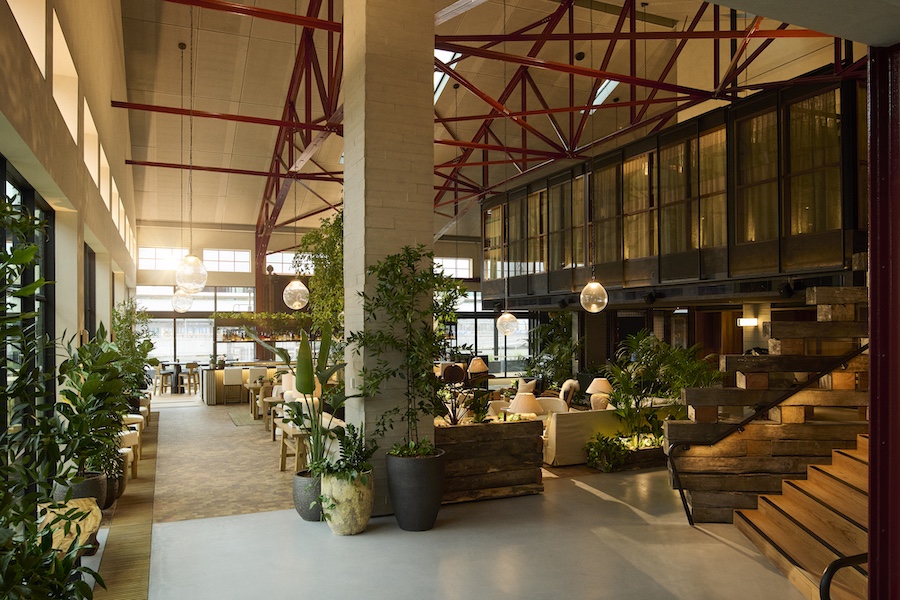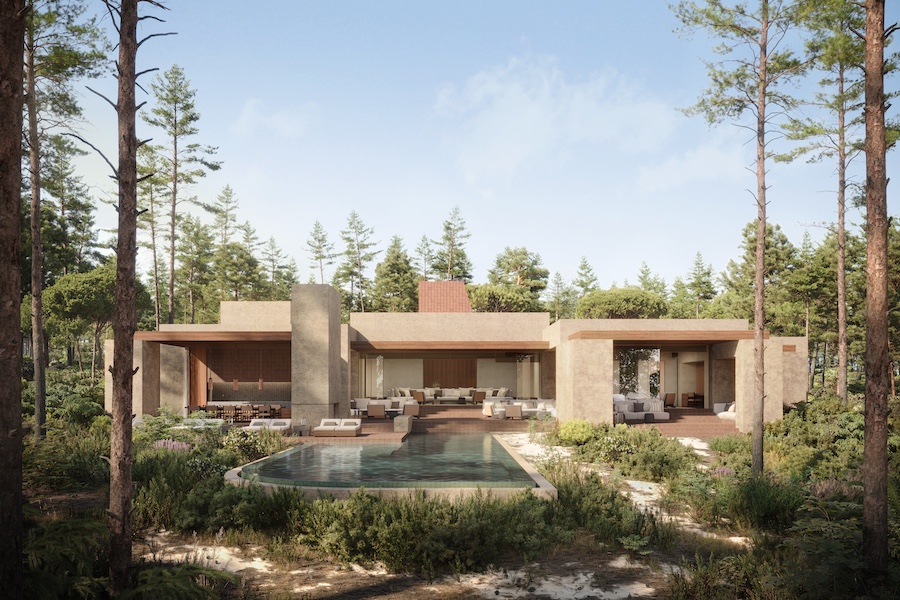Inspired by its Sonoran desert surroundings, JW Marriott Starr Pass in Tucson, Arizona, is making great strides in going green. In an effort to reduce water use, Starr Pass Golf Club only overseeds fairways and tees of the Arnold Palmer Signature Golf course during the winter months. By allowing the roughs to go dormant, the resort saves millions of gallons of water each year. All golf course irrigation is reclaimed water; no ground water is used when watering the golf course.
Starr Pass Golf Course is also a member of the Audubon Cooperative Sanctuary Program, which helps golf courses enhance wildlife habitats and protect natural resources for the benefit of people, wildlife, and the game of golf. The program is designed to give golf course managers the information and guidance they need to implement stewardship projects and receive recognition for their efforts.
The sustainable theme continues with the resort’s culinary offerings. The banquet department and most food outlets have made a commitment to purchase organic food when available. The resort has committed to purchasing only humanely treated animals free of any additional hormones or antibiotics, as they are available. For its produce, the resort works closely with the Agua Linda CSA (community supported agriculture), an organic grower that practices sustainable agriculture free of any GMO (genetically modified organisms) or use of engineered seed crops. Starr Pass owns shares of the farms, with culinary team members often donating their time to help harvest. The resort kitchen also maintains an organic garden outside of Primo Restaurant.
Starr Pass has implemented a linen reuse program within housekeeping. Bed linens are changed every three days unless otherwise requested by guests, thus reducing water use. In the convention spaces, recycle bins are now placed in strategic locations to allow guests to recycle newspapers and fine paper used during meetings. Every department participates in a comprehensive paper recycling program. In addition, all newspapers from guestrooms are recycled by housekeeping. Plastic cups in the lobby have been replaced with cups made almost entirely of corn. The cups break down in composting within 45 days.
Since opening in 2005, the resort has donated 330 acres of pristine Sonoran desert to the Tucson Mountain Park for continued maintenance and preservation of the land. The resort sits adjacent to the park, with many on-site trails leading to the Tucson Mountain Park. In addition to the land donation, Starr Pass and the City of Tucson have created an Environmental Enhancement Fund, which allocates a percentage of resort sales, contributing $17 million in 20 years. This fund is used to conduct research on mountain lion populations, build trailheads, and erect signage in Tucson Mountain Park, as well as measures to control buffelgrass, a non-native species of plant that increases the threat of fire to the desert.
During the development of the resort property, non-native soil was never brought into the resort during the building process; rocks were ground to use as fill dirt to build the resort. When the resort was built, 95 percent of the property was left in the original state of the Sonoran desert, including all plant material. The property participates in xeriscaping (low water landscaping). All washes and natural waterways were preserved and kept intact to allow free flow of water sources from the upper desert to lower regions, thus fulfilling the commitment of allow the water aquifer to be replenished and to preserve the natural highways for desert animals.


